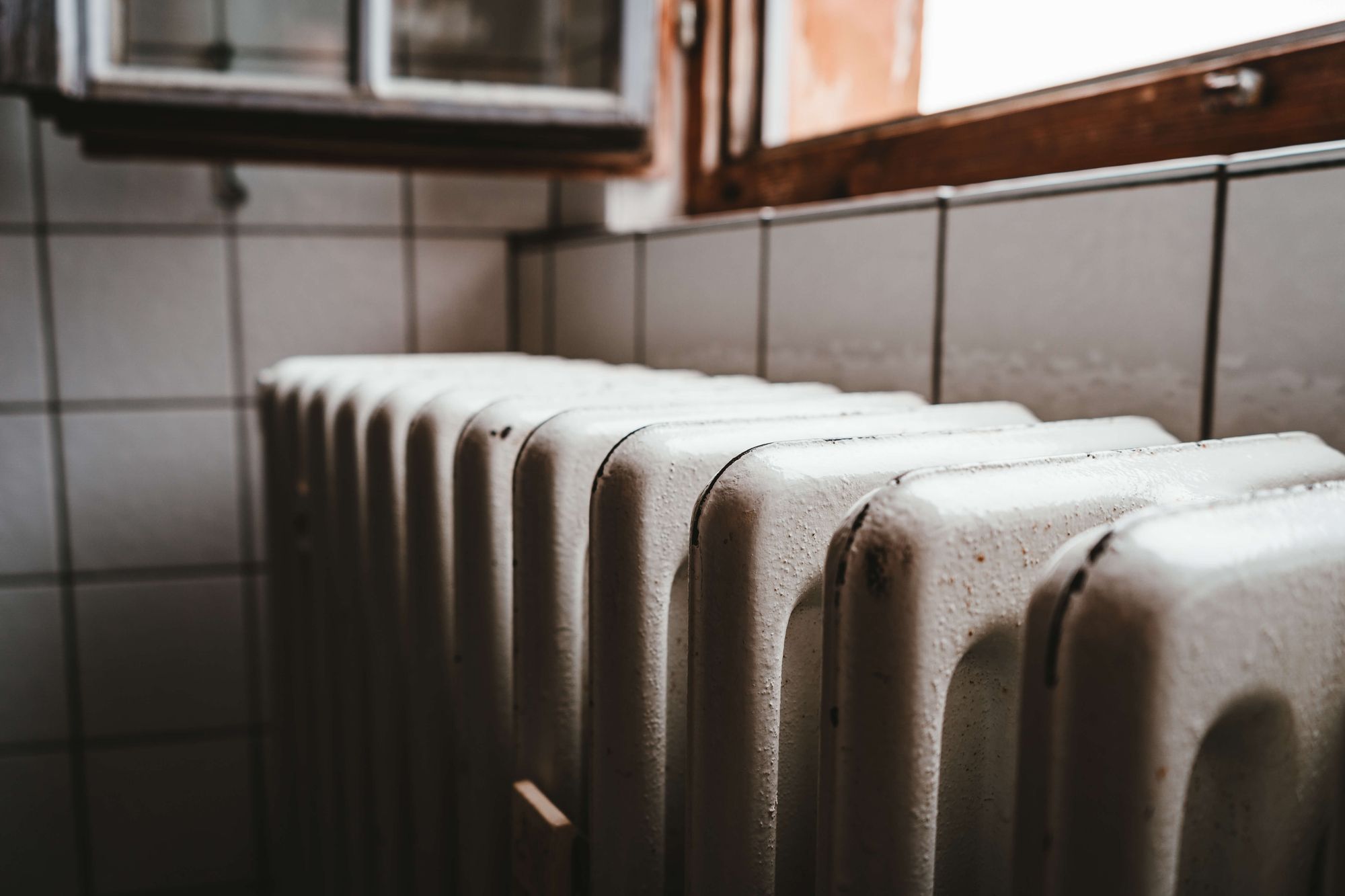Why is your boiler more likely to break down between these times of year?
There are two common reasons for a boiler on the blink during the winter months of December and January.
The first is that you are using your boiler on a daily basis and the harder a boiler has to work, the more strain you're placing on its components. If the boiler is suffering from wear and tear or small issues, this is the time you're most likely to push it over the edge into a breakdown.
The second potential reason for a boiler breakdown in winter is the freezing outside temperatures. Frozen water in pipes, the boiler itself and the condensate pipe can create a blockage which will cause the boiler to stop working.
How to prevent a boiler breakdown
Get your boiler serviced every year by a Gas Safe engineer. A boiler is much like a car in that it needs to be maintained to keep it in good working condition. The annual boiler service is an engineer's opportunity to check the boiler is working efficiently, effectively and safely. They will also be able to catch small issues before they cause a major problem and will clean and replace parts which are showing signs of wear and tear.
- Insulate your pipes. To prevent frozen pipes you can wrap them in pipe insulation which you get from most DIY stores for very little money. If you're concerned that your pipes are frozen, you can often thaw them by pouring warm water on them or with a hot water bottle.
- Carry out some occasional boiler maintenance. For example, check that the water pressure level is between 1 to 2 bars (and adjust it if it's not) and that the pilot light is a strong blue flame (not yellow or orange). Your radiators will also need bleeding now and again to get rid of air pockets which build up over time and will stop your radiators from heating up fully.
- Turn your central heating on during the summer. Obviously, your heating shouldn't be on continuously during the summer, but leaving a heating system inactive for too long can cause the system to stagnate and blockages to form. To keep the water flowing through the pipes, turn your heating on for 15 minutes once a month during the summer.
You should get to know how your boiler works and to recognise when there might be a problem. Listen for odd noises and if the boiler seems to be struggling to reach a high enough temperature, don't ignore it as it's unlikely things will get better without some maintenance or a repair.
Signs that your boiler needs replacing
If you think that your boiler may need replacing in the near future, don't wait for it to completely give up before you get a new one. Aside from the inconvenience of living without heating and hot water until a replacement is fitted, there are several other reasons why you shouldn't delay a boiler replacement.
An inefficient or malfunctioning boiler won't be heating your home effectively so you'll probably be feeling cold in your home and turning the thermostat up to compensate making your heating bills more expensive. It could also be costing you significant money in repairs, and most importantly, it could become a serious safety risk if it starts to leak carbon monoxide in your home.
Here are some common signs that you're boiler should be replaced sooner rather than later.
- It breaks down regularly.
- It keeps turning itself on and off.
- Your heating bills are more expensive with no changes to your usage or energy tariff
- Your boiler is over 12 years old and/or replacement parts are no longer available to get it repaired.
The pilot light (flame) is no longer burning blue. If you notice that the pilot light is orange or yellow, the boiler may be producing carbon monoxide, an odourless and colourless gas which is potentially lethal. Similarly, if you can smell the eggy odour of gas in your home when the boiler is working there may be a gas leak. If you suspect a gas or carbon monoxide leak you should turn the boiler off and contact the Gas Emergency Line on 0800 111 999.
Why is summer the best time to get your boiler repaired or replaced?
Although demand for boiler services, repairs and replacement is lower between March to October, this is actually the best time to get these jobs carried out. Here are a few reasons to go against the trend and get your boiler repaired in the summer.
- Heating engineers and companies are often less busy during the summer and may offer more competitive prices.
- You should find it easier to get an appointment time that suits you.
- Having work carried out on your boiler means it will need to be turned off; if you have to go without heating and hot water, it makes much more sense to do it in the summer.
- If a boiler breaks in winter you will be without heating and hot water until it can be fixed. Getting things sorted ahead of the winter will give you real peace of mind that your boiler is in good condition before it's tested by the freezing temperatures ahead.
Why is it more expensive to get your boiler repaired during December and January?
Generally speaking, most plumbers will turn down work over this period or be able to pick and choose the work that they complete. If you do manage to get hold of a plumber that can attend your home… you will most definitely pay a call out premium and even an hourly rate hike.
We've found that a large majority of heating related problems can be either diagnosed or even solved over a video consultation. Our “Ask an Expert” service is fast, convenient and could cost you up to 75% less when compared to the average plumber's callout fee.
So if your boiler is on the blink, Ask an Expert first and get your heating back on quicker and save yourself money in the process.
Click or scan to install the Planna app and get affordable expert advice at a time that suits you.



